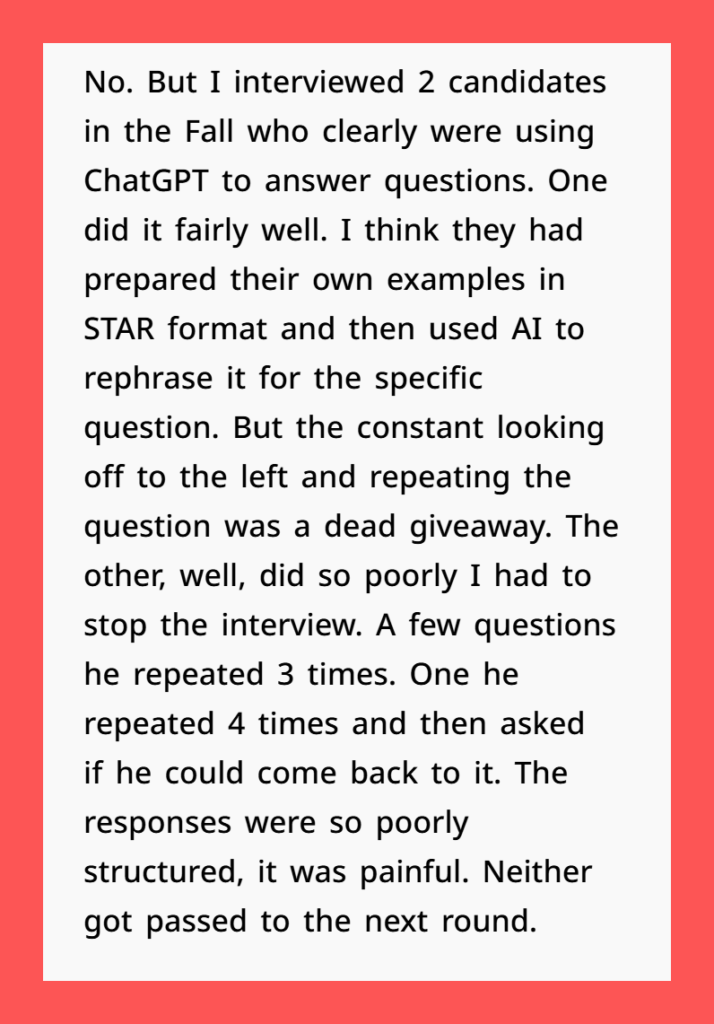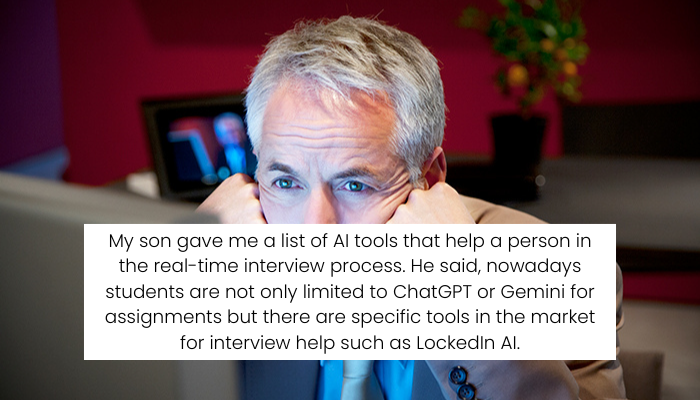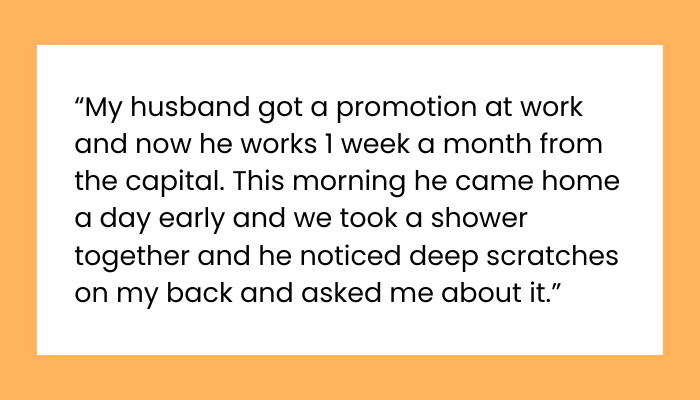Developer Tries to Cheat His Interview Using AI, But Recruiter’s Son Uncovers the Truth
In the ever-evolving landscape of the tech recruitment industry, a seasoned IT recruiter recently encountered an interview scenario that raised unsettling questions about the authenticity of candidates in virtual interviews. The candidate, despite an average performance in initial rounds, displayed unusual confidence and precision during the final technical interview. What stood out was a repetitive pattern: the interviewee consistently repeated each question verbatim before delivering keyword-loaded, syntax-heavy answers.
Perplexed by this robotic interaction, the recruiter sought insights from his 18-year-old son, only to discover the existence of AI-powered interview tools like LockedIn AI—real-time AI assistants designed to help candidates during virtual interviews. This revelation not only opened a window into the growing AI-driven job market but also highlighted the ethical concerns and recruitment challenges faced by professionals as technology redefines traditional hiring processes.
Artificial intelligence is becoming widely used for many purposes

An IT recruiter found out the extent of it during an interview with a candidate












AI in Hiring — The Two-Way Street No One Talks About
There’s a wild irony buried in this story — a recruiter shocked that a candidate might’ve used AI-powered interview tools during a live interview. But here’s the kicker: companies have been using AI recruitment software against candidates for years. And heading into 2025, it’s not just a trend — it’s industry standard.
According to a 2024 Resume Builder report, 70% of companies plan to use AI hiring tools this year. Even now, 82% of employers leverage automated resume screening software to filter candidates long before a human gets involved. Additionally, 40% use AI chatbots to interact with applicants, and a growing 19% admit they’re testing AI to conduct interviews themselves. (Resume Builder)
Think about that. We worry that candidates are “cheating” when they turn to AI, but the system was gamified by employers first. AI-powered applicant tracking systems (ATS) have been eliminating candidates based on keyword mismatches and algorithmic scoring long before any human brain assesses potential.
The Business of AI Recruiting — Big Money, Big Stakes
There’s a reason why companies invest heavily in recruitment automation software — it saves time and, frankly, money. High-stakes hiring, especially in fields like tech, finance, and healthcare, means the right hire is worth millions over time. That’s why phrases like “enterprise recruitment software”, “AI candidate screening tools”, and “automated hiring platforms” carry some of the highest CPCs in the HR tech industry.
Platforms like HireVue, Pymetrics, and Eightfold AI sell employers the promise of eliminating human bias and streamlining hiring. These systems analyze everything from your resume’s structure to the tone of your voice during interviews. AI video interviewing software even scores candidates based on micro-expressions, eye contact, and “confidence markers” — metrics most humans would struggle to quantify.
It’s no wonder the global recruitment software market is projected to surpass $3.85 billion by 2030, driven largely by AI integration. (Source: Fortune Business Insights)
Candidates Are Fighting Back — and Leveling the Playing Field
Here’s the part no one talks about: job seekers are catching on. Your son was right — tools like LockedIn AI are designed to assist applicants in real time during interviews. These platforms analyze the recruiter’s question live and feed back optimized responses, complete with technical jargon and high-impact keywords.

Similarly, candidates now use resume optimization software like Jobscan to reverse-engineer job descriptions and pass automated ATS filters. They rely on AI interview coaching tools that record practice sessions, grade their responses, and even predict common follow-up questions based on machine learning.
Let’s be honest — if employers use AI hiring tools to screen applicants, can we really blame candidates for using the same tech to survive the process?
The Emotional Cost of AI-Powered Hiring
Beyond the tech war, there’s a human cost we’re glossing over. Zahira Jaser, a human experience tech professor, told CBS MoneyWatch that candidates often feel “existential dread” knowing they’re performing for an algorithm. No human reactions, no empathy, no chance to adapt your pitch based on subtle cues. Just a cold AI determining your fate. (CBS MoneyWatch)
And she’s right. The job search is already grueling — rejection after rejection chips away at your confidence. But now, people aren’t just losing out to better candidates; they’re losing because an algorithm didn’t like their phrasing or detected too many “umms” during a video interview.
AI Bias, Privacy, and the Risks No One’s Addressing
There’s another layer of complexity — AI hiring software isn’t perfect. In fact, it’s been called out for perpetuating bias. A few years ago, Amazon scrapped its AI recruiting tool because it penalized resumes that included the word “women’s,” showing how these systems can absorb and amplify societal biases.
Virginia Tech researchers like Dylan Losey worry that flawed AI models could push decisions companies don’t fully understand. Meanwhile, computer science professor Eugenia Rho warns that our growing dependence on AI could erode our critical thinking — and worse, our capacity for human connection. (Virginia Tech Engineer Magazine)
When we let algorithms decide who gets hired, promoted, or even interviewed, we risk building workplaces that value conformity over creativity — because, let’s face it, AI doesn’t know how to spot “potential.” It only knows how to match patterns.
AI in Recruitment — Is There a Middle Ground?
Smitri Joshi, a digital mental health expert, offers a more balanced perspective. She argues that the answer isn’t ditching AI but educating ourselves on how to use it responsibly. AI, for years — and spending big on it.
According to an October 2024 report by Resume Builder, 70% of companies plan to use AI recruitment tools to hire employees this year. Right now, 82% of businesses use automated resume screening software, scanning applications for keywords before a human ever looks at them. 40% of companies rely on recruitment chatbots to manage early communication. And perhaps most shocking — 19% plan to conduct interviews entirely through AI-powered platforms.
(Source: Resume Builder)
That’s the real game most people don’t see — the system is already stacked. Employers are quietly using AI hiring software, facial recognition analysis, and machine learning recruitment tools to filter talent long before that “personal touch” interview ever happens.
The Emotional Fallout of AI Interviews: Candidates vs. Algorithms
This shift isn’t just technical — it’s emotional. Zahira Jaser, a human experience tech professor, told CBS MoneyWatch something that really sticks: people sitting for AI-led interviews report experiencing “existential dread.” Imagine prepping for weeks, then facing a screen that measures your blinking or pauses, without ever seeing another human face. No body language to read. No empathy. Just cold, calculated algorithms.
(Source: CBS MoneyWatch)
In those moments, it stops feeling like a job interview and starts feeling like a test you didn’t sign up for — a test where the rules change, and no one tells you how it’s graded.
AI Is Changing the Power Dynamic — And It’s Not Equal
It gets murkier when you realize most of these AI hiring tools aren’t perfect. Virginia Tech professors have been vocal about the ethical landmines. Dylan Losey, a mechanical engineering assistant professor, warns that flawed AI models can hard-code biases we don’t even understand. Think about that — an AI recruitment software system silently eliminating people based on patterns the developers didn’t even intend.
(Source: Virginia Tech Engineer Magazine)
Meanwhile, Eugenia Rho, a computer science professor, points out that over-reliance on AI screening tools could make us worse at being human. As we automate communication, critical thinking skills — the exact things that matter on a team — risk getting lost.
It makes you wonder: Are we hiring the best candidate, or the one who knows how to game the system?
Candidates Are Fighting Back — With Their Own AI Arsenal
Here’s the part most recruiters aren’t ready to admit — job seekers are adapting. Fast. The same way companies use AI recruitment automation, candidates now use AI interview coaching apps and real-time response generators.
Tools like LockedIn AI and Yoodli AI give candidates suggested answers during live video interviews. Some even provide follow-up question predictions or natural language processing (NLP) optimization to sound more polished. The internet is flooded with tutorials on setting up dual screens or discreet earphones to pull this off.
And honestly? Can you blame them? When AI-powered applicant tracking systems (ATS) toss 75% of resumes before a human sees them, it feels less like cheating and more like survival.
Is Anyone Thinking About the Ethics Anymore?
There’s a massive ethical gap growing here. Companies spend millions on enterprise recruitment automation tools designed to cut costs and filter talent. And yet, the second candidates figure out how to leverage the same tech, it’s suddenly “dishonest.”
Truth is, both sides are gaming the system. The recruitment software market is booming — forecasted to hit $3.8 billion by 2026, with companies investing heavily in AI-driven hiring solutions. (Source: MarketsandMarkets)
Meanwhile, job seekers are Googling terms like “how to pass AI screening interviews”, “best AI interview tools for job seekers”, and “bypass applicant tracking system 2025” — all high CPC searches because there’s a huge market for these solutions.
Mental Health, Burnout, and the Hidden Cost of AI in Hiring
Smitri Joshi, a digital mental health expert, nailed the hidden cost of this arms race in her interview with the American Psychological Association. She argues that without education and balance, our growing dependence on AI risks eroding not just skills — but mental health.
“It may require us to increase our awareness and educate ourselves about how to leverage it safely,” Joshi explains. (Source: APA)
Candidates — especially fresh grads — now feel like they’re not just being judged by hiring managers but by unseen algorithms weighing every word, every pause. It’s no wonder job search burnout is at an all-time high.
So… What’s the Solution? Do We Scrap AI or Get Smarter?
Killing AI in recruitment isn’t the answer — the ROI on recruitment software is too good for most companies to walk away. But there’s space for balance.
For recruiters, that means doing more real-world skill assessments, live coding tests, or collaborative problem-solving sessions that AI tools can’t easily replicate. It means using AI hiring software as a filter, not a decision-maker.
For job seekers, it means learning how to play smart — not just hard. Use resume optimization tools to pass the automated resume screening software, but know that authenticity still wins in the long run.
The real flex? Building skills that no AI can fake — empathy, adaptability, leadership.
Final Thought: AI Is Here, But the Human Element Still Matters
If there’s one takeaway, it’s this — AI is no longer the future of hiring; it’s the present. And both sides need to wake up to that reality.
Instead of being shocked when candidates use AI tools for interviews, recruiters should reflect on how deeply they’ve already automated their own processes. If AI recruitment software and machine learning in hiring are the new normal, then candidates have every right to level the playing field.
The real question isn’t if AI belongs in hiring. It’s how we keep the human element alive in an industry designed — at its core — to be about people.
Commenters had mixed reactions to the story











